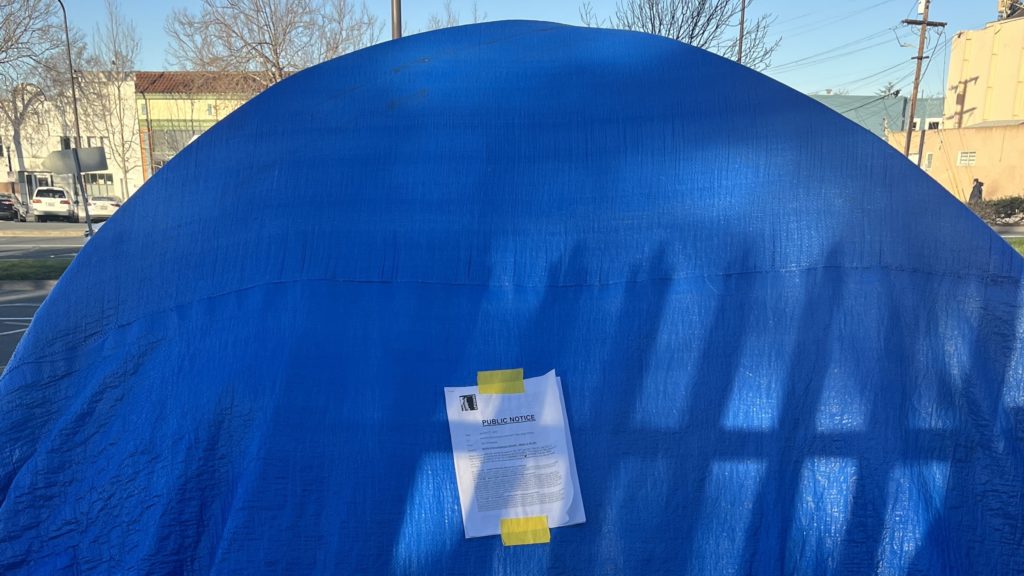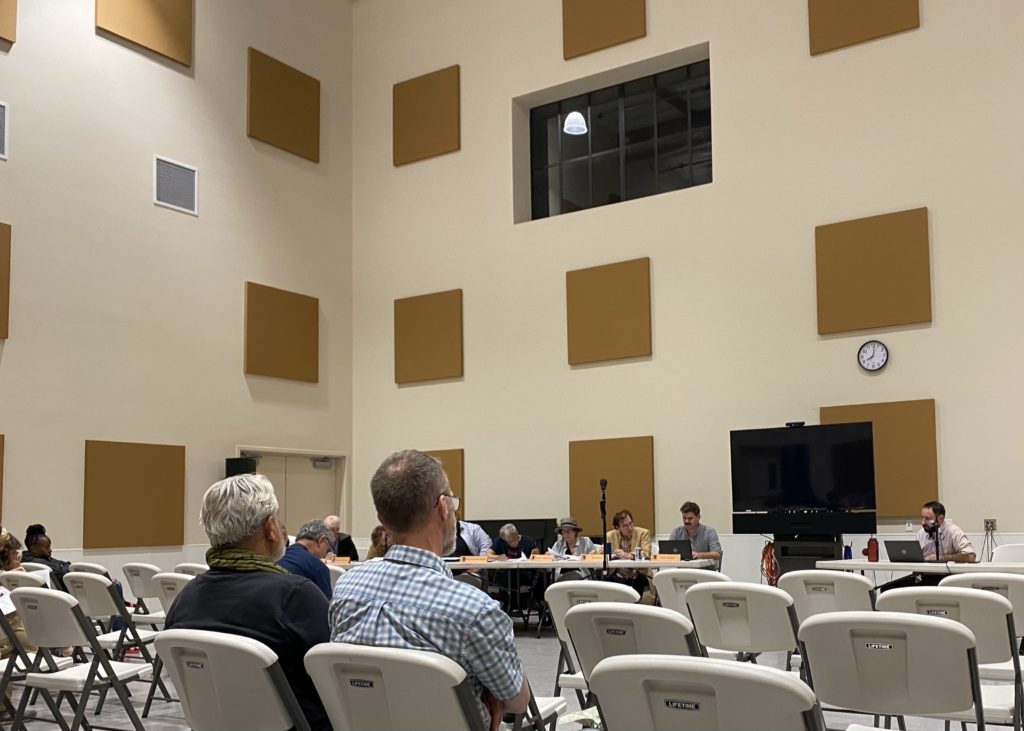by Bradley Penner
New guidelines would dictate how officials prioritize encampment sweeps in the City of Berkeley
Berkeley officials have drafted an encampment accountability policy that would determine how to prioritize sweeps throughout the city. Known as the “Good Neighbor Guidelines,” the policy asks encampment residents to abide by a series of rules that, if violated, would lead to a range of interventions including the posting of public notices to voluntarily relocate, providing health and hygiene resources, voluntary trash removal, deep cleanings, and encampment closures.
The guidelines were developed by Assistant to the City Manager Peter Radu to be included in the city’s Encampment Response Policy—a draft policy that city staff began working on in 2018 in response to the growing number of people living on city streets.
As currently written, the draft guidelines use the personal accountability of homeless people to determine when and how the city should perform an intervention. The current draft of the guidelines are:
- Please throw away your trash and old food.
- Please keep your belongings out of the road.
- Please do not build any structures out of wood, metal, or other materials that can create a fire hazard or injury risk.
- Please try to stay to one sidewalk side of the street.
- Please be fire safe.

The draft Encampment Response Policy includes an outline for the city’s tiered approach for intervention, ranked “lowest, medium, and highest” priority. Encampments that would be “low priority” for intervention would meet the Good Neighbor Guidelines, and include residents who limit their possessions to a footprint of no more than 9 square feet outside their tent or vehicle. Encampments considered the highest priority for closure include those that pose “imminent health hazards, including rodents and rodent harborage conditions, syringes, and raw sewage.”
Encampments in violation of the Good Neighbor Guidelines would be subject to intervention at the city’s discretion, but as currently written, the policy does not describe how the city would determine when to provide resources, such as portable toilets and trash pickup.
In response to a question from panel member Donnell Jones regarding how the city would ensure encampments receive resources such as dumpsters or portable toilets before being cited for non-compliance, Radu stated that the city intends to apply “progressive engagement strategies to mitigate impacts,” but will maintain “flexible application” of intervention strategies on a case-by-case basis.
Furthermore, encampment communities that follow the guidelines may still be considered medium or high priority if the city determines they are causing “interference with businesses and residences and [sic] public infrastructure,” or are considered “hindrances to construction or other City-issued permits.” Medium and high-priority encampments will be subject to closure if violations “cannot be resolved with less intensive interventions [and] whenever possible, given limited city resources, closures shall be performed in accordance with Federal best practices.”
The policy states that “citation/arrest will be reserved for case-by-case situations [that] cannot be resolved with non-criminal interventions.”

Radu introduced the Good Neighbor Guidelines to Berkeley’s Homeless Services Panel of Experts (HSPE) at a public meeting on October 4. The HSPE is a city council-appointed civilian committee that makes recommendations “on how and to what extent the City should establish and/or fund programs to end or prevent homelessness in Berkeley.” If approved by the HSPE, the guidelines will be referred to the Berkeley City Council for review. If they are approved by the council, they will become part of the city’s Encampment Response Policy.
In response to the presentation, members of HSPE made note of the fact that the city’s lack of available health and hygiene resources—such as dumpsters, portable toilets, handwashing stations, and showers—have directly contributed to conditions the guidelines seek to address.
“I want to say that providing porta potties and dumpsters—as many as are needed from the city—is a simple act both of kindness, of respect, and of solving a lot of the stress that people are under,” panel member Denah Bookstein said.
“I really can’t emphasize that enough. It’s a basic human need—you can’t expect people to walk three blocks or half a mile to a porta potty,” Bookstein said. “And if there’s a congregation of people, you can’t expect to have one porta potty to serve the needs of the people. I don’t think it’s an issue of finding the money. I think it’s an issue of top priority.”
During an extensive public comment period, Berkeley residents also voiced concerns about the policy’s ambiguous language, stringent expectations of unhoused residents, and for framing basic resources such as dumpsters and portable toilets as interventions that, if prioritized in place of closure, would give homeless people the same opportunity to live tidy and safe lives as their housed neighbors.
At the end of the October 4 meeting, HSPE motioned to appoint a subcommittee to further discuss the policy before referring it to the city council. The goal is to collect feedback from the public in time to refer the policy to the council before its meeting on January 3, 2024.
Bradley Penner is the Co-Editor in Chief of Street Spirit, where this article was originally published

